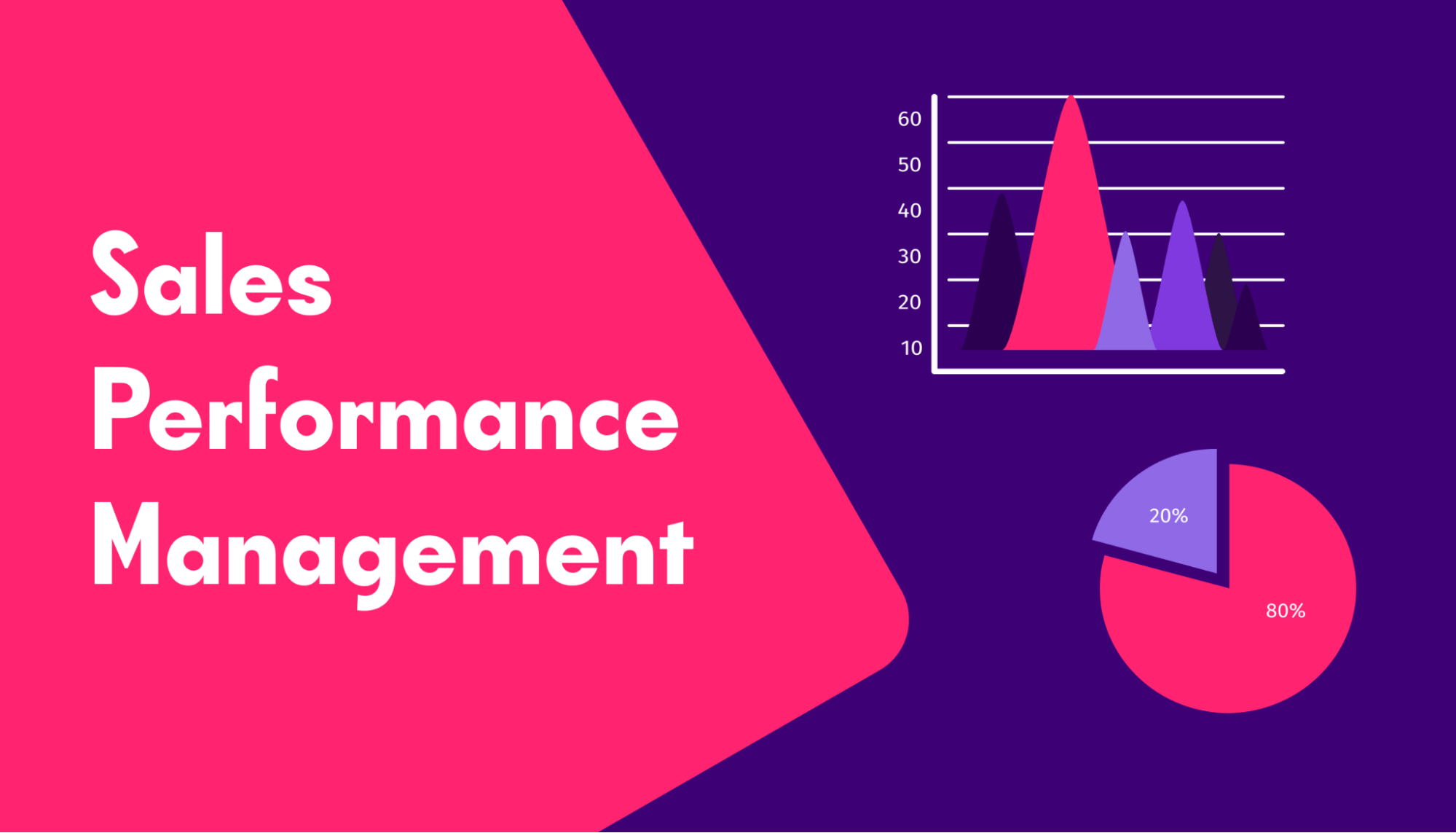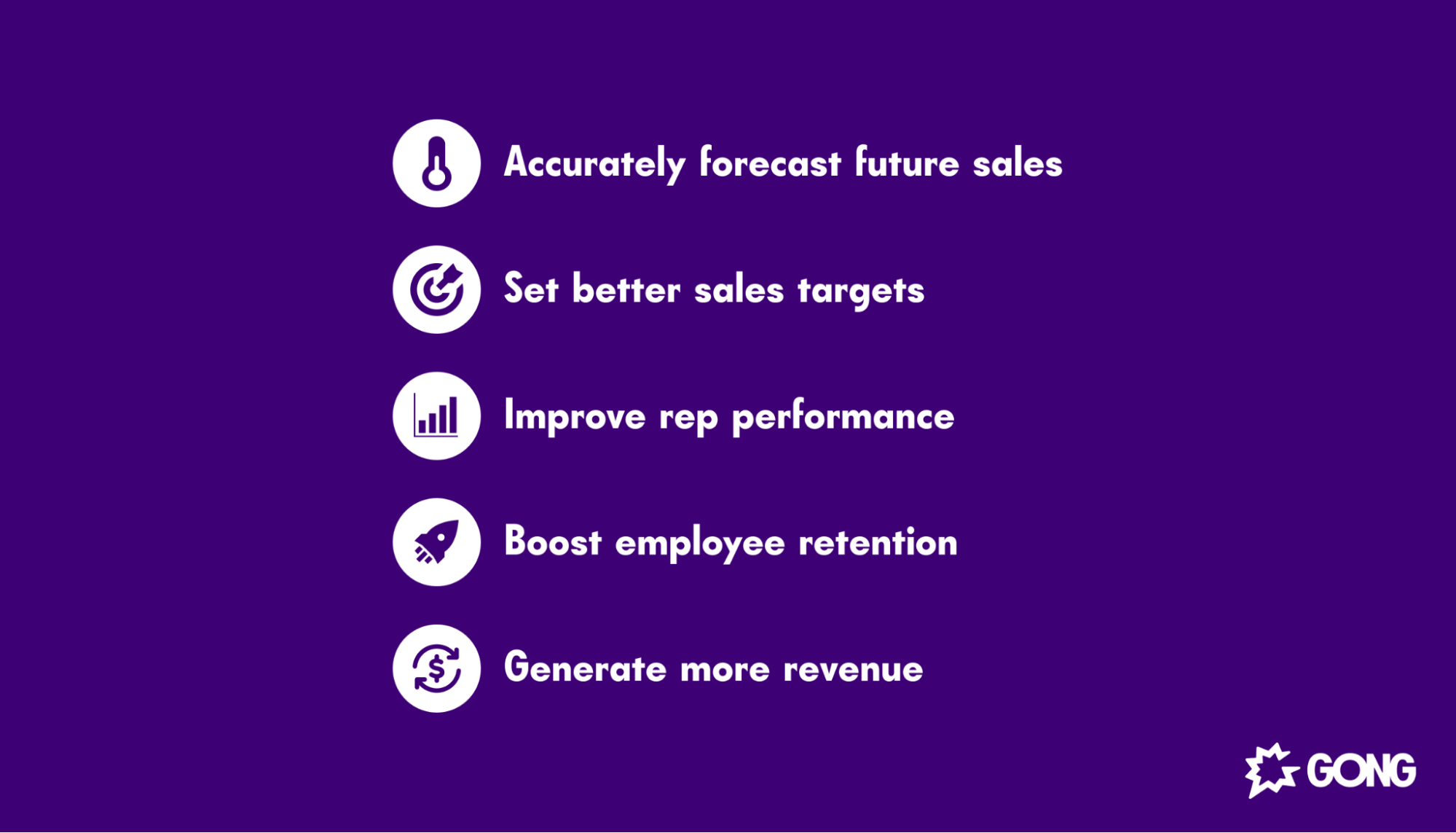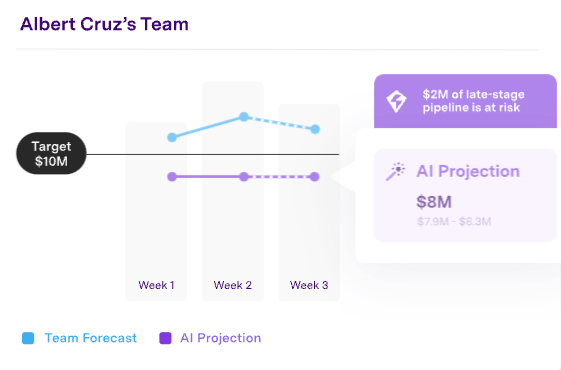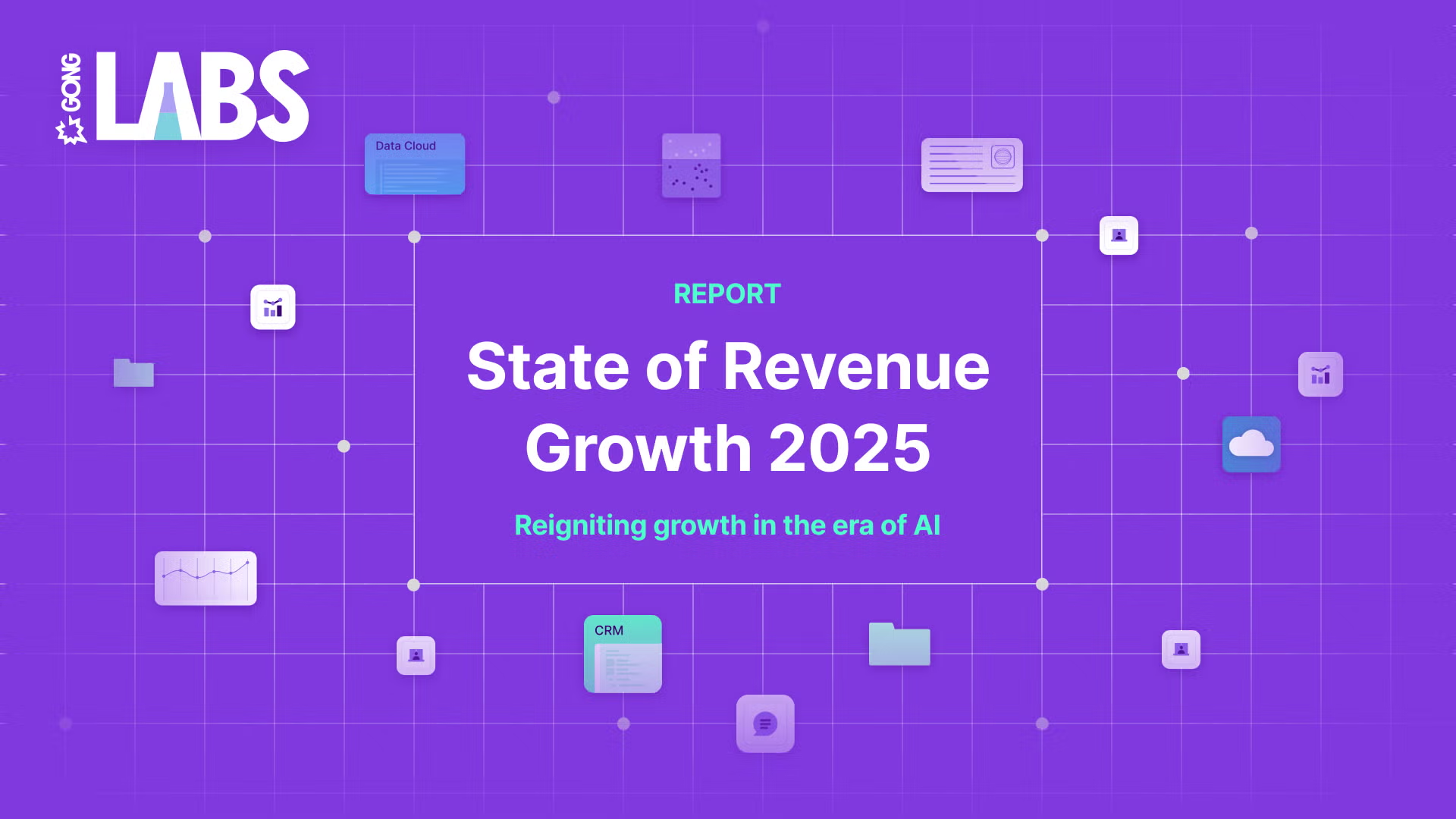Sales strategies
Everything sales leaders need to know about sales performance management

Dan Morgese
Director, Content Strategy and Research at Gong
Published on: November 12, 2024

Every sales leader wants a more efficient and effective team.
Who among us doesn’t want to build a sales team that exceeds quotas month after month, quarter after quarter? No wonder there are hundreds of strategies and methodologies that promise to be a silver bullet. But you won’t see real, measurable results if you start implementing them at random.
You need a framework.
Sales performance management (SPM) uses data to systematically improve the most important parts of your sales process. From setting goals to forecasting, no stone is left unturned in your pursuit for a higher win rate and more revenue.
In this article, we’ll cover everything a modern sales leader needs to know about SPM, why you should use it, and how to maximize your results.
What is sales performance management?
Sales performance management (SPM) is a data-backed framework leaders use to improve individual and team performance .
It covers virtually every part of the sales process and leverages all your management skills , from setting goals and objectives to coaching reps, forecasting, and monitoring performance. The goal is to drive continuous improvement across your team as a whole and for individual reps.
What are the key components of an SPM framework?
Your SPM framework should be tailored to your company’s goals and requirements.
Every SPM framework is unique, but there are several vital elements to include regardless of what you want to achieve.
Sales planning
Planning lies at the heart of SPM. Start by evaluating fundamental decisions you probably made ages ago, like the best way to segment your markets, organize your accounts and allocate sales territories to each rep. Make every decision meaningful so that reps feel rewarded by their territories, not regretful.
Goal and incentive setting
Money talks. Incentivize your reps to become more productive by setting tough (but realistic) quotas. Don’t forget to reward them handsomely, and don’t let motivation wane. Review goals and commission structures regularly to avoid their going stale.
Performance monitoring
You want to see improvement in your team’s performance, right? Then you need to check if reps are on course to hit their goals.
Regular check-ins are an option, but it’s much easier to use sales performance management software that automatically captures and analyzes every customer interaction. This software also makes it easy to track deals through your pipeline and see where bottlenecks occur.
Analysis
Don’t just acquire sales data; turn it into insights through detailed analysis. Like performance monitoring, this isn’t something you need to do yourself. A revenue AI solution like Gong can analyze your data to uncover deal-winning insights you might otherwise miss.
Coaching
Bonuses aren’t the only way to help reps hit and beat their quotas. Personalized sales coaching can help reps master the parts of your sales process that they struggle with and close more deals. With Gong, for example, managers can use AI to spot behavioral patterns and target the skills reps need to improve.
Forecasting
Accurate forecasting helps you stay ahead of risks and make data-backed decisions — like which markets to focus on and which deals to prioritize.
As Michael Duncan , Director of Revenue Ops at Gong explains, “We constantly analyze our pipeline to be sure it aligns with our goals. We use Gong to analyze complex data and make informed decisions, relying on our own platform to solve the deal challenges we encounter.”
Why is sales performance management important?
Let’s look at the benefits sales performance management offers.

Chiefly, it makes you and your sales team more productive, efficient and effective — so you can smash targets and increase revenue. Here’s exactly what you can expect when implementing an SPM framework:
Accurately forecast future sales
Making accurate predictions about future sales is tough, with 67 percent of sales operations leaders agreeing that accurate sales forecasts are harder to create today than they were three years ago.
SPM changes that with the help of sales data collection. The pipeline metrics you automatically gather during the performance monitoring part of the process make it easier to spot emerging sales trends. That’s not to mention the added reassurance that comes from using an AI-powered SPM tool that uses hundreds of data points to create more accurate forecasts.
Set appropriate sales targets
If you want to motivate your reps, you’ll want to avoid setting unattainable targets. Unfortunately, that’s easier said than done with 91 percent of organizations failing to hit sales targets in 2023.
SPM makes things easier. The framework’s focus on data means you won’t need to pull targets out of thin air. You can base quotas on existing sales data to make them as motivational and attainable as possible.
Improve rep performance
Whether your team is full of fresh-faced SDRs or grizzled industry veterans, employing SPM can skyrocket their performance.
For one, an SPM framework ensures that you set attainable targets that motivate reps to perform. It also promotes accountability across your organization, making reps even more likely to fill their quotas.
Second, a renewed focus on sales training gives your reps the insights they need to perform better. Managers can use the data they collect to focus on the parts of the pipeline reps struggle with, and provide targeted advice that helps reps improve.
Boost employee retention
How many of your sales team would be willing to leave for a better job offer? When we surveyed sales talent in 2022, almost half of them were actively looking for new opportunities.
But a sales performance management initiative can encourage your team members to stick around for the long haul. When you improve training, goal setting, and your overall sales strategy, you make your company much more appealing to sales representatives who want to develop their skills and get paid for hitting targets.
Your finance director will love you too, given the high cost of recruiting and training new staff.
Generate more revenue
If you’re like the majority of sales leaders we surveyed in our State of Sales Engagement report, your top priority will be creating a pipeline that quickly converts to revenue.
And, at the end of the day, that’s exactly what SPM will help you build. Implement the framework and you’ll be well on your way to building a bigger, stronger pipeline — one that’s bursting with high-value deals your reps close more often than not.
How to improve your sales performance management framework
Now that you know why SPM matters, let’s look at how to run it without a hitch.
Focus on feedback
Sales performance management initiatives may be mandated by your leadership team, but it’s important to get feedback from everyone involved in the process before and after it’s implemented — especially your sales reps.
Your reps will experience the impact of SPM first-hand, and will be able to tell you what’s working and what isn’t. They may even have SPM ideas you haven’t considered.
Sales coaching is a major part of SPM, and feedback should flow both ways. Give your reps frequent feedback so they know what they’re doing well and where they can improve.
Track relevant and meaningful metrics
If you want to improve your sales performance — and you surely do — then track relevant key performance indicators (KPIs) that align with your business goals.
We recommend tracking both revenue- and activity-based KPIs individually and company-wide. That will provide you with a series of leading and lagging indicators you can use to identify issues and opportunities.
Your revenue-based metrics can include:
- Total revenue
- Deals won
- Quota attainment
Your activity-based metrics can include:
- Dials
- Conversations
- Meetings
- Demos
In either case, you can use these metrics to measure performance or create a quota that reps need to hit.
Set ambitious but attainable goals
Push your sales reps to succeed by setting ambitious goals. But make sure they’re attainable and back them up with generous incentive schemes .
Personalization is key. Blanket goals are easier to set, but they won’t consider an individual rep’s strengths and weaknesses. This can demotivate less experienced reps who fail to meet their quota, or top-performing reps who hit their monthly quota in two weeks and have no motivation to go further.
And don’t forget about yourself! The whole point of SPM is to improveyourdepartment’s performance, so set a relevant department-level goal for yourself and it with the rest of your team. When reps understand their role in the broader team’s goals, it can make them more determined to meet their own targets.
Leverage SPM software
Plenty of managers have tried to run an SPM plan manually using nothing more than a CRM and a spreadsheet. But it’s a fraught process that’s cumbersome and often inaccurate. You’re much better off leaning on SPM software.
The right sales performance management software gives you the coaching, forecasting, and reporting capabilities you need to automate and streamline the entire sales process .
For instance, Gong’s Revenue AI Platform serves up personalized coaching insights and recommendations to help teams replicate the actions of top performers. And reps can analyze sales calls for insights , personalize sales enablement content , and get AI-backed suggestions on how to move deals forward.

Sales-based AI can improve the quality of your work too.Take sales forecasting as an example. Gong uses over 300 unique signals to predict deal outcomes with 20 percent more accuracy than an algorithm that uses CRM data alone.
Get started with Gong
Sales performance management isn’t another task to add to your already overflowing plate. It’s a different way of thinking about all the tasks you have to do anyway, and doing them in a way that delivers better results.
Don’t embark on an SPM program alone, though. Trust Gong to understand what’sreallyhappening in your pipeline, so you can do more of what works and less of what doesn’t. You’ll be able to fix underlying issues with your existing sales processes, provide better coaching to reps, and make better decisions based on highly accurate forecasts.
Your SPM framework is all available in a single platform. Book a demo today to learn more.

Director, Content Strategy and Research at Gong
For over a decade, Dan has provided revenue leaders with data and insights to inform and execute their GTM strategies. As a former analyst at Forrester Research, he worked with hundreds of B2B organizations to measure and improve sales productivity.
Discover more from Gong
Check out the latest product information, executive insights, and selling tips and tricks, all on the Gong blog.



